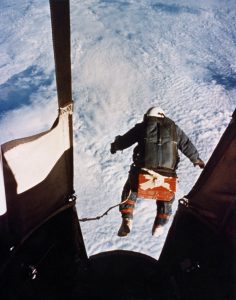After They Were Famous: What Happened Next?

Gulf Markets: The Liquidity Well Runs Dry
1 November, 2015
Investors Line Up After Myanmar’s Landmark Moment
10 November, 2015The Guardian/The Observer, Inner Life section, November 8 2015
Read this on The Guardian site here
One day Alan Bean decided it was time for a change of career. History, he knew, would always remember him as the fourth man to walk on the Moon, during the Apollo 12 mission in 1969; he’d served on Skylab, too. But he wanted to do something else with his life.
So he took to his life’s great passion, painting, and has done so with considerable success for the best part of 40 years. But in all that time, he’s only ever painted one thing: astronauts on the surface of the Moon.
Moving on from a defining moment can be challenging – and not just for Moonwalking astronauts. Many of us are aware of a moment when we think: well, that’s it, everything else is an afterthought now. For some, it is the kids leaving home; for others, the highest point they reach in a corporate career. For many, the pivotal moment of their life is about tragedy or loss. But it is all punctuated by the same urgent question: now what?
For sportspeople in particular, a life’s high point can come troublingly early. Nadia Comaneci was 14 when she scored the first perfect 10 in Olympic competition in 1976; achievement-wise, it was all downhill from there.
Being trapped in a moment, good or bad, is unhealthy, something acknowledged everywhere from academic psychology through to the self-help mainstream. As Henry Cloud puts it in Necessary Endings, “for there to be anything new, old things always have to end, and we have to let go of them.” Psychotherapist Amy Morin, the self-help guru of the moment, says the mentally strong “don’t constantly relive bad experiences or fantasize about the glory days.” It’s nothing new: the Old Testament acknowledges it. “There is a time to tear down and a time to build.”
Perhaps we can learn from the experiences of those who will always be known for a single event, no matter what else they do. The Apollo astronauts are a good place to start, as they illustrate that there’s no single answer to finding new direction: among other pursuits, they found post-Moon succour in religion, alcohol, academia, business, politics and a lifelong study of consciousness twined with a deep belief in extra-terrestrial visitation (that last one’s Edgar Mitchell: you should look him up).
Some people, while knowing that the top line of their Wikipedia entry is set in stone no matter what else they do, move right away from their famous moment in order to move on. Anyone remember Ray Wilson? He’s probably the least-remembered player from the England 1966 World Cup-winning side. That’s because, rather than staying in the game, he became an undertaker in Huddersfield instead. Imagine that: one minute, a hundred thousand people chanting your name; the next, a career where your only working relationship is with the dead and the bereaved.
Some seek to erase their moment of fame so as not to be trapped by it. In 1960, Joe Kittinger jumped out of an open gondola 31 kilometres up in the sky in an experimental spacesuit, a feat so audacious that the consequent sky-diving record stood for 52 years. But what’s most interesting is that when that record did fall, to the Austrian Felix Baumgartner, it did so because Kittinger himself had spent four years helping to make it happen. When Baumgartner stepped out of his own high-altitude capsule, it was with the soothing voice of Kittinger talking him through it from the ground.
The strongest people find advantage or strength in tragedy. Think of John McCarthy, whose hellish five and a half years incarcerated in Beirut have helped to fashion an exceptionally deep understanding of the Middle East, making him an admired journalist in a field where he was once the headline. Or take Al Haynes, who was the captain of United 232, a notorious air disaster that was at once a desperate sadness, costing 112 people their lives, and also one of the greatest feats in the history of aviation, saving many more. To process the trauma of it all, Haynes developed a talk about the crash and what he learned from it. He’s now delivered it more than 1400 times.
What is there for the rest of us in all of this? That life not need be defined by a moment, or at least not ruined by it. The people I interviewed did not spend the long suffixed years after their moment of fame looking backwards, and were all the healthier for it.
Chris Wright is the author of No More Worlds to Conquer, published by The Friday Project, a HarperCollins imprint
